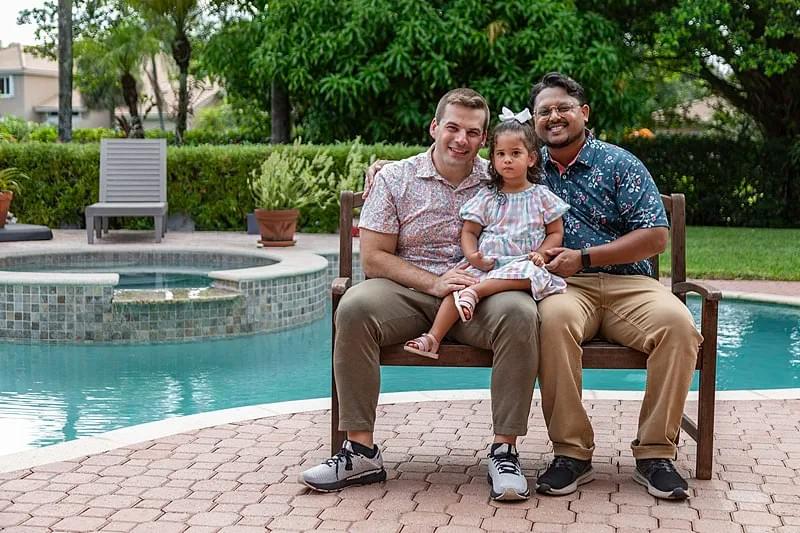The landscape of family formation has evolved dramatically over the past few decades, with assisted reproductive technologies (ART) offering new pathways to parenthood. Among these, surrogacy has emerged as a viable and increasingly common option for individuals and couples facing infertility, same-sex partners, and single parents by choice. While surrogacy enables the dream of parenthood for many, it also introduces complex emotional and psychological dimensions—particularly concerning the identity development of children born through this process.
As society becomes more accepting of diverse family structures, it is crucial to address the unique identity issues that may arise for children conceived via surrogacy. Understanding these challenges and fostering open, honest communication can empower families to support their children in building a strong sense of self.
Understanding the Surrogacy Journey and Its Emotional Dimensions
Surrogacy involves a gestational carrier who carries a pregnancy for intended parents. In most modern arrangements, the embryo is created using the genetic material of the intended parents or donors, meaning the surrogate has no biological connection to the child. Despite this clarity in biological terms, the emotional and social narratives surrounding surrogacy can be intricate.
For children born through surrogacy, the story of their conception is often different from the traditional “mom and dad” narrative. This difference, while not inherently problematic, can become a source of identity confusion if not addressed thoughtfully. From a young age, children begin to form a sense of self based on their understanding of family, origin, and belonging. When a child learns they were born via surrogacy, especially if the information is disclosed late or in a confusing manner, it can trigger questions about their identity, legitimacy, and place within the family unit.

The Importance of Early and Honest Disclosure
One of the most significant factors influencing a child’s identity development is when and how they learn about their surrogacy origins. Research in developmental psychology suggests that children who are told about their conception early—ideally before the age of 10—tend to integrate this information more naturally into their self-concept.
Delaying disclosure can unintentionally send the message that the topic is taboo or shameful. Some parents fear that telling their child might cause confusion or emotional distress. However, studies indicate the opposite: children who grow up knowing their story from an early age are more likely to view surrogacy as a positive and empowering part of their identity.
Experts recommend using age-appropriate language to explain surrogacy. For young children, simple analogies—such as “You grew in another mommy’s tummy so you could be born healthy”—can be effective. As children grow older, parents can provide more detailed explanations, including the medical, legal, and emotional aspects of the surrogacy journey.
Openness also fosters trust. When children feel they can ask questions without judgment, they are more likely to develop a secure attachment and a healthy self-image. Conversely, secrecy or inconsistent narratives can lead to feelings of alienation or identity fragmentation later in life.
Biological vs. Social Identity: Bridging the Gap
A central theme in identity formation for children born through surrogacy is the distinction between biological and social parentage. In cases where donor gametes are used (e.g., donor eggs or sperm), the child may not share a genetic link with one or both intended parents. This can raise questions about heritage, ancestry, and personal history.
It is important for parents to acknowledge these complexities without minimizing them. For example, a child may wonder, “Who do I look like?” or “Where did my curly hair come from?” These are not just casual curiosities—they are expressions of a deeper need to understand one’s roots.
Families can support identity integration by:
- Preserving and sharing the surrogacy narrative: Creating a life story book or recording family videos can help children visualize their journey from conception to birth.
- Acknowledging the surrogate’s role: Referring to the surrogate with respect and gratitude helps children understand that their birth involved love and collaboration from multiple people.
- Discussing donor origins (if applicable): If donor gametes were used, providing non-identifying donor information (when available) and being open to future contact (if permitted by law) can satisfy a child’s curiosity about their genetic background.

Social Challenges and Peer Perception
Beyond the family circle, children may face social challenges as they interact with peers and broader societal norms. In school settings, discussions about family trees, baby photos, or parental stories can inadvertently highlight differences. A child might feel self-conscious if their story doesn’t align with their classmates’ experiences.
Bullying or insensitive comments—such as “But that woman isn’t your real mom!”—can be particularly damaging. Therefore, it is essential for parents and educators to promote inclusivity and educate others about diverse family structures.
Support groups and community networks for families formed through surrogacy can provide children with peer connections and role models. Hearing stories from other children with similar backgrounds can normalize their experience and reinforce a positive identity.
Additionally, media representation plays a role. As more TV shows, books, and films portray surrogacy and non-traditional families in a respectful light, children are more likely to see their own lives reflected in culture, reducing feelings of isolation.
Psychological Well-being and Long-Term Identity Integration
Longitudinal studies on children born through ART, including surrogacy, generally show positive psychological outcomes when families are supportive and communicative. However, identity issues can surface during key developmental stages—particularly adolescence, when identity exploration peaks.
Teenagers may revisit their surrogacy story with new questions: “Why did my parents need a surrogate?” “Do I have the right to know my donor?” “How do I explain my family to my friends?” These are not signs of distress, but rather natural parts of identity formation.
Parents can support teens by:
- Encouraging open dialogue without pressure.
- Seeking counseling from therapists specializing in ART and family dynamics.
- Respecting the child’s evolving perspective on their origins.
Some young adults may express a desire to contact their surrogate or donor. While legal and ethical considerations vary by country, honoring a child’s autonomy in seeking information can be a powerful affirmation of their identity.

Building a Supportive Ecosystem
Supporting a child’s identity development in surrogacy-born families is not a one-time conversation but an ongoing process. It requires empathy, education, and access to resources. Mental health professionals, fertility clinics, and advocacy organizations are increasingly offering counseling and workshops tailored to these families.
Moreover, legal frameworks must continue to evolve to protect the rights of all parties—especially the child. Clear birth certificates, transparent donor registries, and international surrogacy agreements can reduce ambiguity and reinforce a child’s legal and social identity.
For intended parents, self-education is key. Understanding the psychological milestones of identity development and preparing for difficult questions can build confidence in parenting through surrogacy.

Conclusion: Embracing Complexity with Compassion
Children born through surrogacy are not inherently at a disadvantage when it comes to identity formation. What matters most is the environment in which they grow. Families that prioritize honesty, emotional availability, and inclusive narratives empower their children to embrace their origins with pride.
As surrogacy becomes more common, so too must our understanding of its long-term emotional and psychological dimensions. By normalizing conversations about conception, celebrating diverse family forms, and supporting research in this field, we can ensure that every child—regardless of how they entered the world—develops a strong, resilient sense of self.
For parents navigating this journey, remember: your openness today lays the foundation for your child’s confidence tomorrow. Identity is not just about biology or birth stories—it’s about love, belonging, and the stories we tell with intention and care.
